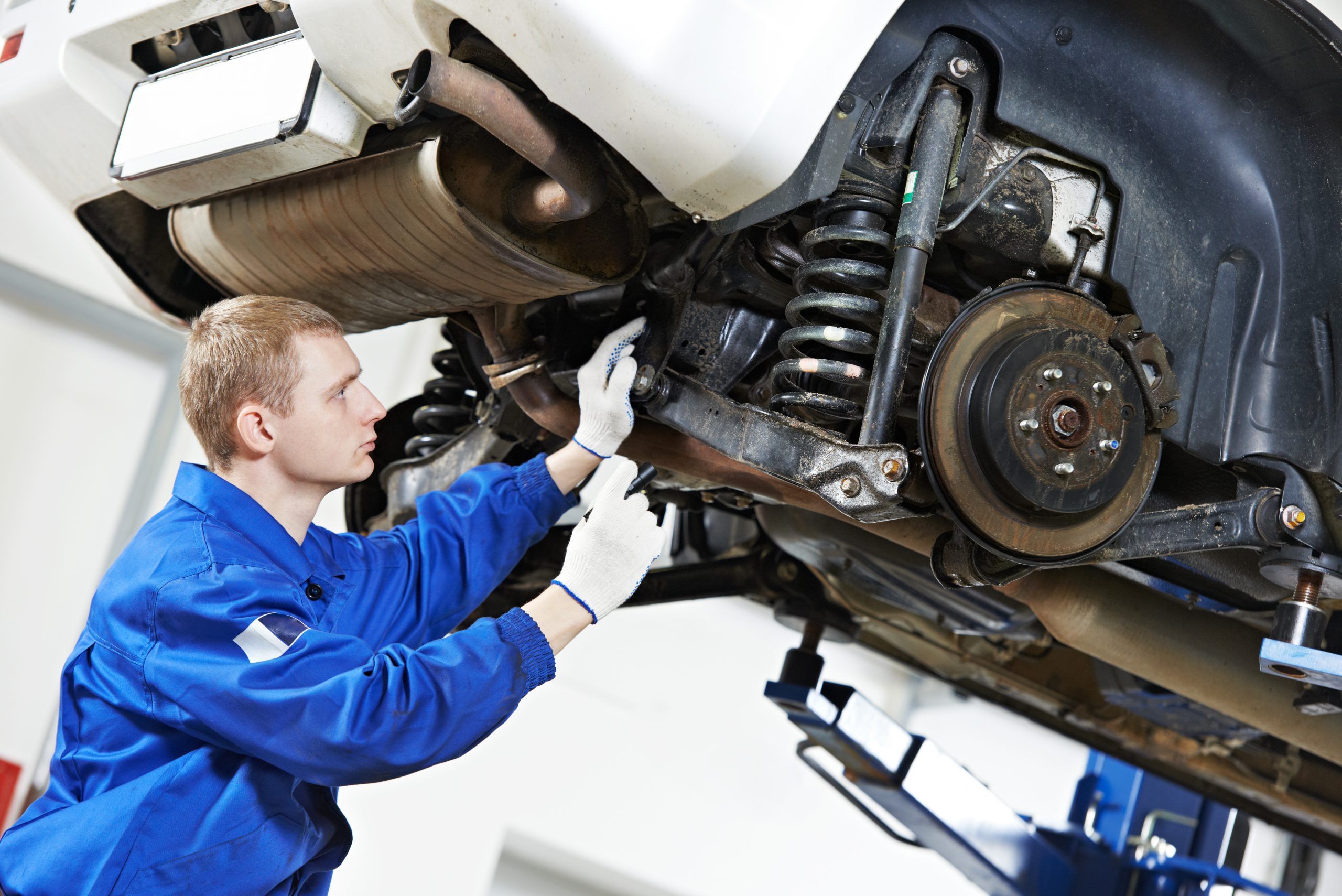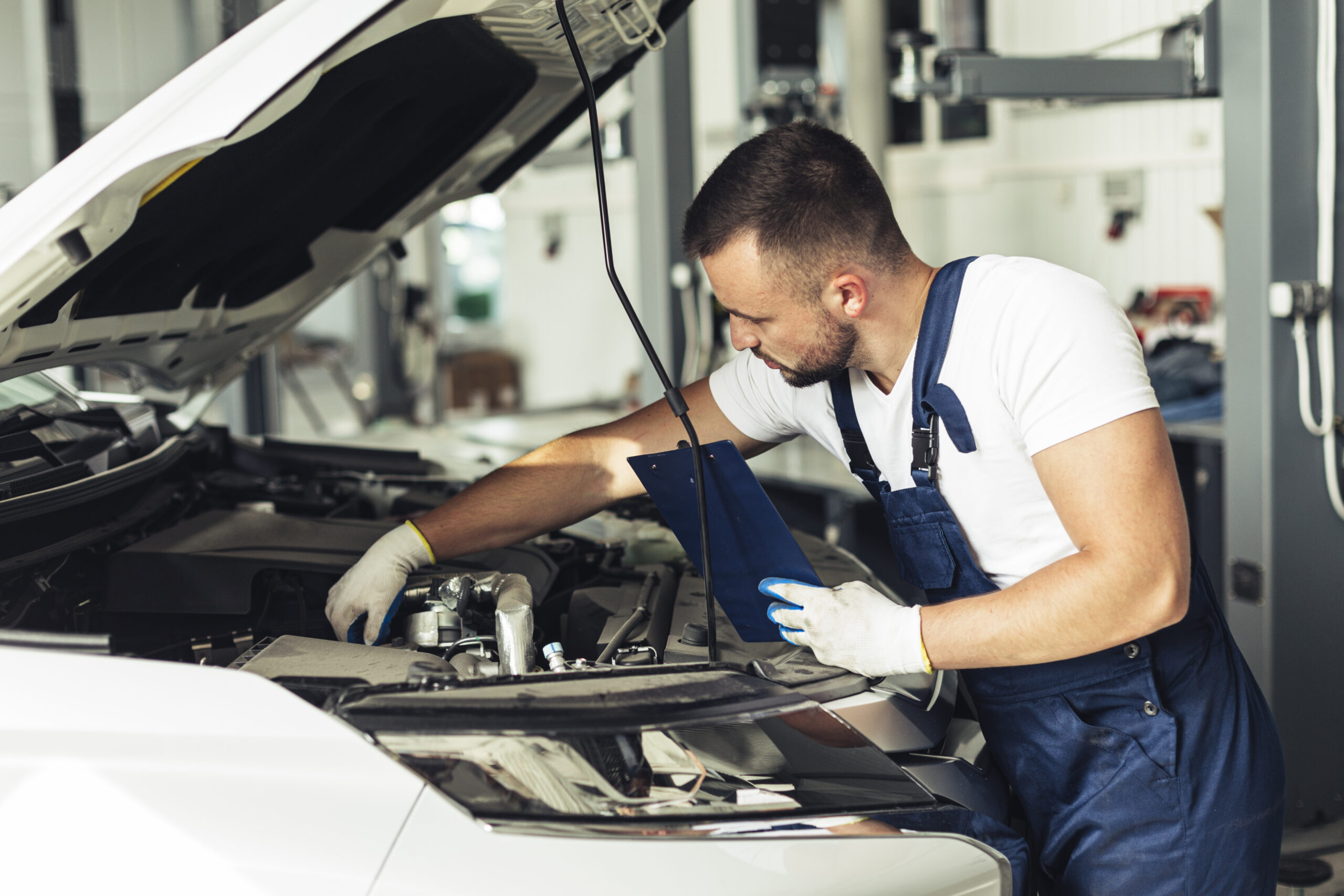All Categories
Featured

[/image]

When it involves vehicle maintenance, the brakes are perhaps the most essential system for guaranteeing your safety. Your brakes should operate optimally to stay clear of accidents and respond rapidly in emergencies. Regular brake assessments are necessary to maintaining your braking system in top condition. Recognizing when and how to inspect your brakes can save you from hazardous circumstances and expensive repair services in the future. Right here's an overview to help you stay on top of brake inspections.
- Why Brake Examinations Are Crucial. Brakes are made to wear down with time, however without regular assessments, you might not notice when they come to be less effective. A defective brake system can bring about severe crashes, enhanced repair service costs, and also the need to replace other automobile components.
Brake inspections not only help you capture prospective concerns before they escalate, yet they likewise enable for far better braking efficiency, raised vehicle lifespan, and improved safety and security.
- Recognizing Warning Indicators for Brake Troubles. While routine examinations are necessary, you don't need to wait up until your vehicle's next check out to the technician. Expect these indication that might indicate it's time for an examination:
Unusual Noises: A shrill squeal or grinding noise when using the brakes commonly indicates that the brake pads are used down or harmed. Soft or Mushy Brake Pedal: If the brake pedal feels soft or squishy when pressed, there may be air or dampness in the brake lines, or the brake liquid may be low. Drawing to One Side: If the automobile draws to one side while braking, it might indicate irregular brake pad wear or a hydraulic issue in the brake system. Vibration in the Guiding Wheel or Pedal: If you experience vibration or pulsation when stopping, it may be a sign of deformed blades or unequal brake pad wear. Boosted Stopping Distance: If it takes longer than usual to bring your cars and truck to a quit, it may be time to examine the brake pads, fluid degrees, or blades. If you notice any one of these signs, it's finest to have your brakes inspected instantly by a specialist.
- Key Components Checked Throughout a Brake Inspection. Throughout a brake inspection, a certified technician will analyze numerous essential components of the brake system to ensure they're operating properly. Several of the most essential parts to examine include:
Brake Pads: These are the rubbing product that presses against the brake blades to reduce the automobile. Gradually, the brake pads put on down and need replacing. Brake Rotors: Rotors are the steel discs that the brake pads clamp down on. They ought to be smooth and devoid of deep grooves or splits. Brake Fluid: The brake fluid transfers the force from the pedal to the brakes. Low fluid levels or old, contaminated liquid can bring about poor braking efficiency. Brake Lines: Brake lines bring liquid from the master cyndrical tube to the brake elements. They should be looked for leakages, fractures, or damages. Brake Calipers: These secure the brake pads onto the rotors. They should remain in good functioning order and cost-free of leakages. Regularly checking these parts ensures your stopping system works smoothly and helps you prevent hazardous driving situations.
- How Typically Should You Obtain Your Brakes Examined? The frequency of brake assessments relies on your driving habits and the kind of lorry you own. As a general guideline, it's recommended to inspect your brakes at the very least when a year or every 12,000 miles. If you drive in heavy traffic, frequently lug hefty tons, or drive on hilly surface, even more frequent evaluations may be required.
It's likewise an excellent idea to have your brakes inspected if you notice any one of the indication stated previously, as this can prevent more serious issues.
- The Expense of Ignoring Brake Inspections. Disregarding normal brake examinations can cause severe effects. Worn brake pads, damaged rotors, or reduced brake liquid can create your stopping system to fail when you need it most. In addition to the safety and security threats, overlooking brake upkeep can result in pricey repair work in the future.
For instance, if the brake pads are not replaced in time, the damages can include the rotors, causing the requirement for rotor substitute-- a pricey repair. By organizing normal brake inspections, you can avoid these expensive fixings and maintain your braking system in great condition for longer.

- What Happens During a Brake Assessment? A specialist mechanic will carry out a thorough assessment of your lorry's braking system, including checking for the following:
Brake Pad Density: Brake pads require to be changed when they have actually used down to a specific density. Rotor Condition: The mechanic will check the rotors for signs of wear, warping, or scoring. Brake Fluid Degree: Reduced brake liquid can impact braking performance. The technician will certainly examine the fluid degree and restore it if needed. Brake Line Honesty: The brake lines will certainly be checked for any kind of leaks or fractures that might compromise the brake system. As soon as the examination is full, the technician will certainly educate you of any type of essential repairs or substitutes.
Verdict: Stay Safe with Normal Brake Inspections. Your brakes are vital to maintaining you and your travelers risk-free when driving, so routine brake inspections ought to never be overlooked. By paying interest to indication, organizing regular brake checks, and addressing issues promptly, you can make certain that your brakes are always in top form.
Don't wait up until your brakes stop working-- stay aggressive concerning brake maintenance. A little financial investment in brake inspections today can save you from pricey repairs and hazardous circumstances in the future.
Latest Posts
Explore Brake Repair & More: Full Auto Care Solutions from Montclare Auto Repair
Why Consistent Auto Maintenance at Montclare Auto Repair Keeps Your Wallet Happy
Unlock Your Financial Partner at WyHy – Top Benefits for Your Money Goals
More
Latest Posts
Explore Brake Repair & More: Full Auto Care Solutions from Montclare Auto Repair
Why Consistent Auto Maintenance at Montclare Auto Repair Keeps Your Wallet Happy
Unlock Your Financial Partner at WyHy – Top Benefits for Your Money Goals